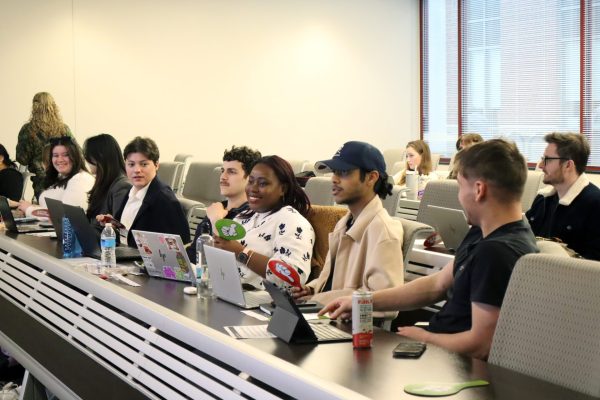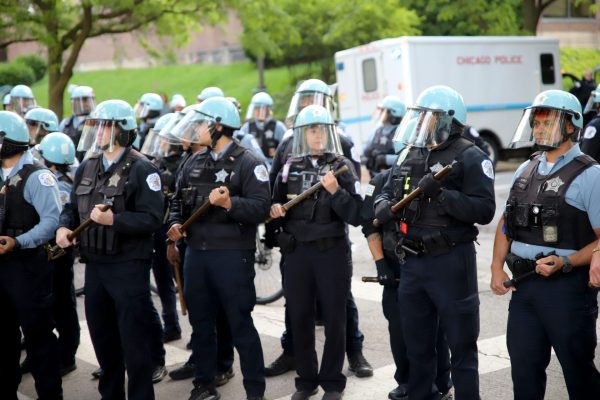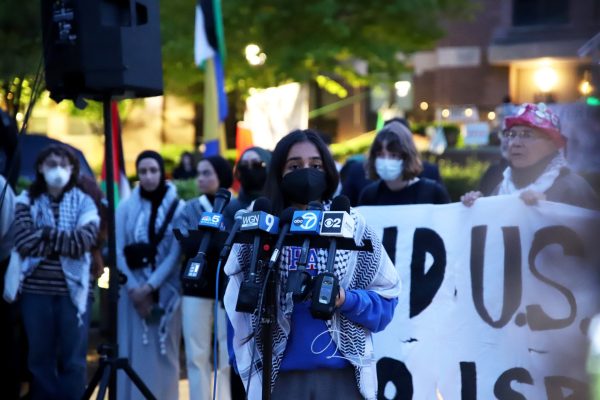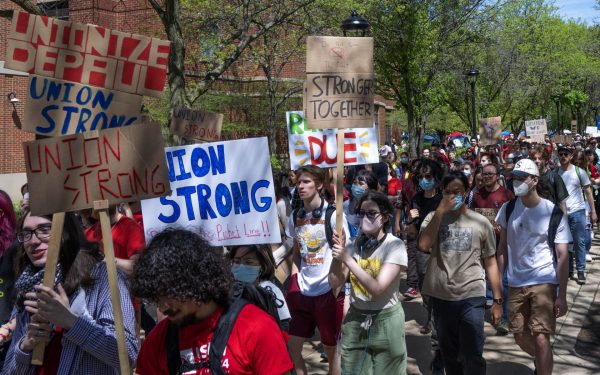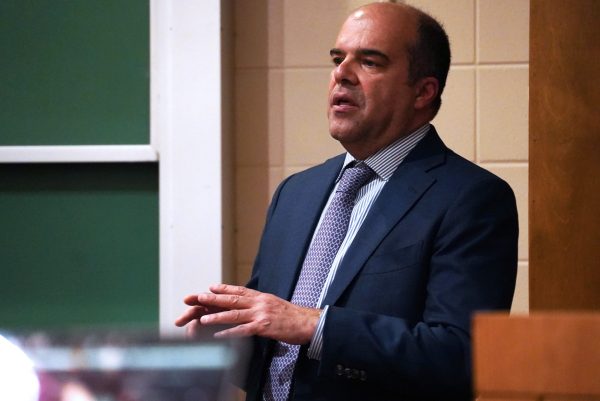DePaul Faculty Council considers ‘banning the box’
DePaul Faculty Council is expected to vote at its June 5 meeting on whether to remove the university’s admission application questions asking applicants if they have been responsible for a disciplinary violation and/or convicted of a misdemeanor or a felony.
Students Against Incarceration (SAI) created the proposal asking the university to remove the questions. Members will be giving a presentation at the meeting to support it.
DePaul does not necessarily deny an applicant based on these questions. While this may be the case, it can deter two-thirds of individuals from continuing their applications, according to a Ban the Box report.
Shelby Klingberg, a senior at DePaul and co-president of the organization, said SAI wants to remove the question so applicants are not deterred.
The Common App, which allows applicants to send their applications to multiple schools, has removed the box, the report said.
Faculty sponsor Nila Ginger Hofman, an anthropology professor, said students approached her to sponsor the bill.
Hofman said she participates in the Inside Out program, which brings students to the Cook County Department of Corrections in Chicago and Stateville Correctional Center in Joliet, Illinois. Students participate in a course with incarcerated students.
“I think it would just open up more opportunities for the applicants,” Hofman said of the ban. “There are so many studies that show that education is a really good way to prevent recidivism and to get people trained, educated, employed and keeping them away from a state of incarceration.”
A statement from SAI cites information from the Journal of Correctional Education, which said recidivism — tendency to offend more than once — decreases by 87.5 percent when students with convictions receive an associate’s or a bachelor’s degree.
Hofman said DePaul misses out when prospective students do not continue their applications.
Klingberg said she knows people are concerned about applicants convicted of sexual offenses. She said schools have implemented policies in which students convicted of violent offenses are not allowed certain internships or jobs and are not allowed to have on-campus housing.
“But we don’t want [a conviction] to affect that educational opportunity that an individual has a right to,” Klingberg said.
Annie Scoltock, a sophomore and president of DePaul’s chapter of the public policy organization the Roosevelt Institute, partners with SAI and is on SAI’s executive board.
Scoltock said the institute did research on higher education being cost-effective and efficient in reducing recidivism. When people have access to higher education and employment and are housing-secure, they are much less likely to reoffend, according to Scoltock.
Scoltock said no one from the Inside Out program has been released or continued their education, so eliminating the questions would increase accessibility for them.
Recidivism impacts communities of color disproportionately, according to prisonscholars.org. The website said recidivism can result in intergenerational poverty and economic mobility, and it impacts the community.
If the motion doesn’t pass, Hofman said the council could tweak the language. It is ultimately up to the administration to make the change.
Klingberg said everyone has a right to education and the ability to pursue job opportunities.
“Not only is this helping someone who is gonna face many barriers after their release because of the society that we’re in […] it can also help chances of falling back into the system,” Klingberg said.



